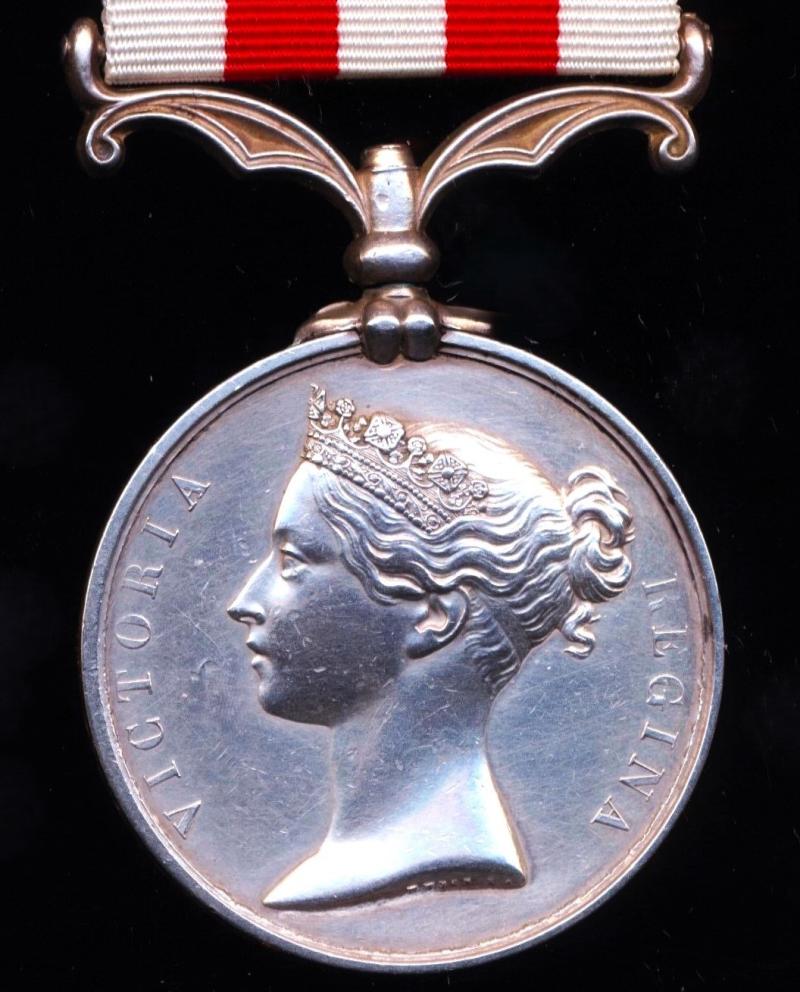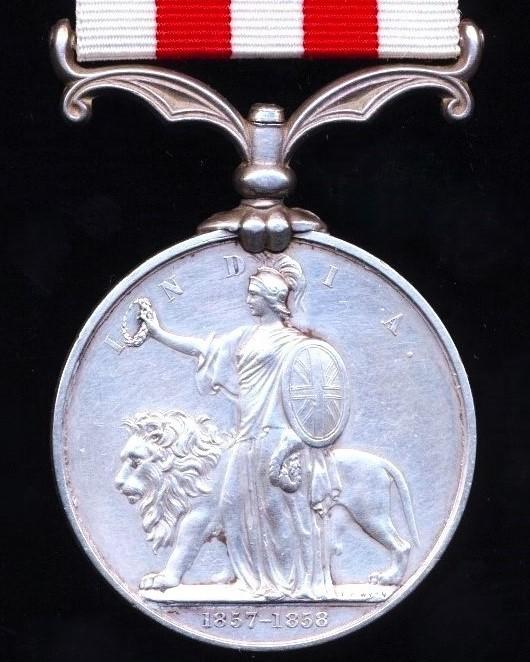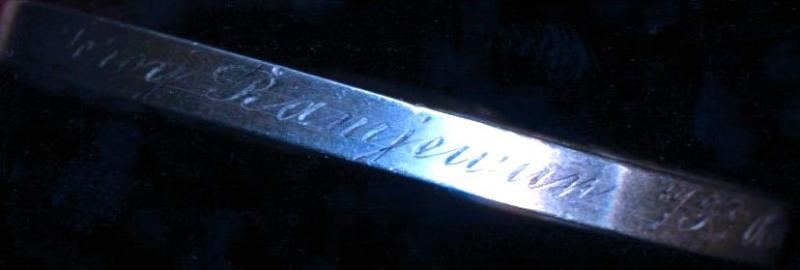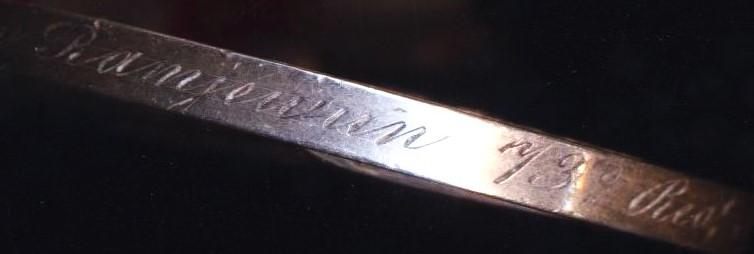Indian Mutiny Medal 1857-58. No clasp (Sepoy Ramjewun 73d Regt N.I.)
Recipient was an Indian soldier of the Hindu faith serving with the 73rd Regiment of Native Infantry, an infantry regiment of the Honourable East India Company's Bengal Army
Important: The 73rd Bengal Native Infantry was one of only a handful of native regiments of the Bengal Army that was not disbanded during the Indian Mutiny 1857-58. The regiment was not, however, entirely loyal, as 'Two Companies' of the regiment stationed at Dhaka Cantonment (now in Bangladesh) did subsequently mutiny, and several conspiracy's had been detected amongst the rest of the regiment located at Jalpaiguri
73rd Bengal Native Infantry: Was raised in 1825, as the 5th Extra Regiment becoming 73rd Regiment of Bengal Native Infantry. Prior to the Indian Mutiny, the regiment ad served in the Punjab during both Sikh wars, for which the men present had been awarded the Sutlej and Punjab Medals. In 1857 the regiment was headquartered at Jalpaiguri, in North Bengal, with two companies of the regiment stationed distant at Dhaka Cantonment. No less than 3 x plots were discovered amongst the native ranks in Jalpaiguri, to foment mutiny and the murder of the British Officers, but on each occasion, 'loyal' elements amongst the native officers and other ranks, reported the ringleaders to the Officer Commanding, Colonel Sherer, who carried out swift retribution, having four of the original ring-leaders 'Blown from the Guns', and others sent in chains downriver to Calcutta for a life in penal servitude. For their acts of loyalty, 3 x native soldiers of the regiment were awarded direct '1st Class' awards of the Indian Order of Merit, viz:
- Sepoy Deoram Doobee (G.O. 559/1858)
- Subedar Bindadeen Tewaree (G.O. 1057 13 July 1858)
- Subedar Achaiba Lolla (G.O. 1057 13 July 1858)
In the case of the award to Deoram Doobee, the recipient was additionally promoted to the rank of Subedar, as his award citation refers:
Quote,
Promoted to the rank of Subedar and specially admitted to the 1st Class Order of Merit for his conspicuous loyalty and great attachment to all his European officers through a period of great peril. For eight months, this man daily kept his commanding officer informed of all that took place in the lines at Jalpaiguri, and enabled him to nip in the bud many a growing conspiracy. Deoram Doobee was thus the means of saving the lives of many, if not all, the British officers at Jalpaiguri
Unquote.
Following the mutiny of the two companies of the 73rd Regiment Native Infantry at Dhaka (where they had been joined by mutinous troops of the 34th Regiment Native Infantry form Chittagong), the Dhaka rebels were defeated by a numerically much smaller force of Indian Navy 'Bluejackets', whereat a very bold 17 year old Midshipman of the Indian Navy earned the Victoria Cross:
Quote,
Indian Navy, Midshipman Arthur Mayo: For having headed the charge on the 22nd of November, 1857, in the engagement between the Indian Naval Brigade and the mutineers of the 73rd Native Infantry, and Bengal Artillery, when the former was ordered to charge 2 sixpounders which were keeping up a heavy fire. Mr. Mayo was nearly 20 yards in front of anyone else during the advance
Unquote.
The Dhaka rebels subsequently dispersed to North Bengal and the region of the Bhootan border - the loyal elements of the 73rd Regiment of Native Infantry, pursuing and fighting their former compatriots and other mutineers in several engagements
A rare seen example of an Indian Mutiny Medal named to a native infantry regiment of the Bengal Army regiment
Condition: VF
Code: 24066







